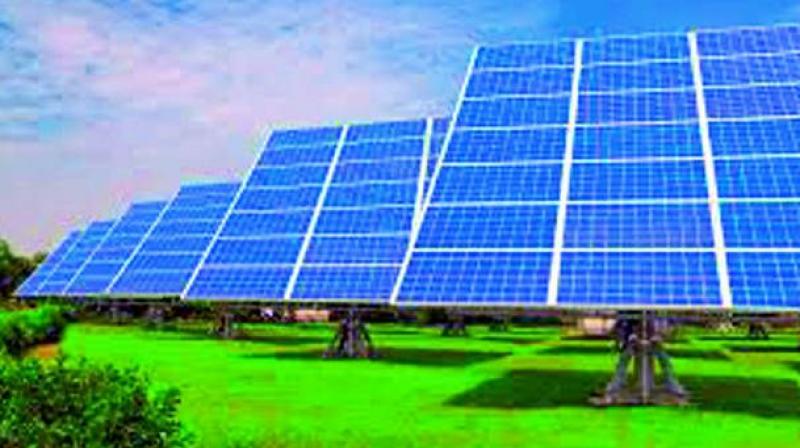Pvt solar producers cry foul over rules

Thiruvananthapuram: Here is an irony that private renewable energy entrepreneurs want KSEB Ltd to acknowledge.
The state has been set an imposing 'renewable energy purchase' obligation, meaning a high solar generation target that KSEBL is struggling to achieve, but still certain regulations in force smother the expansion of the state’s solar capacity.
The private players are especially critical of the KSERC (Grid Interactive Distributed Solar Energy Systems) Amendment Regulations, 2016.
The regulations state that the capacity of a solar plant installed by an individual or firm should only be 15 per cent of the transformer capacity. “This capping is draconian,” said Mr Sivaramakrishnan, a power consultant and the joint secretary of Kerala Renewable Energy Entrepreneurs & Promoters Association (KREEPA).
The cap is also said to be anti-industry. Take for instance an industrial unit connected to a transformer with a connected load of 250 kW that might want to install a solar plant with a connected load of 200 kW. But the regulations will allow just 15 percent of the transformer capacity, which is 37.5 kW. “If this regulation is persisted with, the total roof-top solar capacity that the state can produce will not cross 500 MW,” Mr Sivaramakrishnan said.
A top KSEBL official said that the cap had been imposed in the interests of the security of the power distribution network. “By limiting the solar injection to the minimum load in a power network, we are only ensuring that there will not be any reverse flow in the network,” the official said. But other states, however, have higher caps. Tamil Nadu, for instance, allow 60 percent of the transformer capacity. In Delhi, it is 100 percent.
KSEBL has no choice but to take private help to enhance solar generation. According to the power utility, total additional capital investment required for adding about 189.6 MW of non-solar and about 504 MW of solar, the watts required to meet the new ‘renewable purchase obligations’ target, is a whopping Rs 4400 crore, unthinkable for a cash-strapped public utility.
Private developers also seek exemption from ‘wheeling charges’, which is the rent they pay to KSEBL for using its transmission lines to transport green energy from other sources. “If the promotion of renewable power is the state objective, such incentives are inevitable,” said Mr Muhammed, a member of the Kerala State Small Industries Association.

